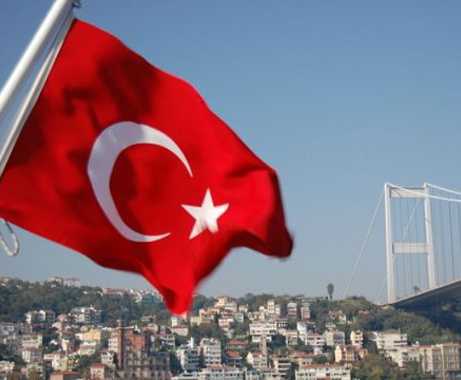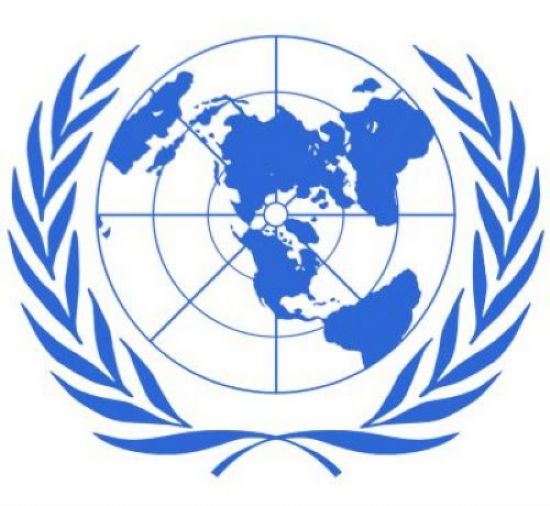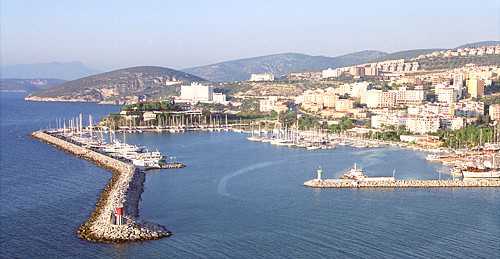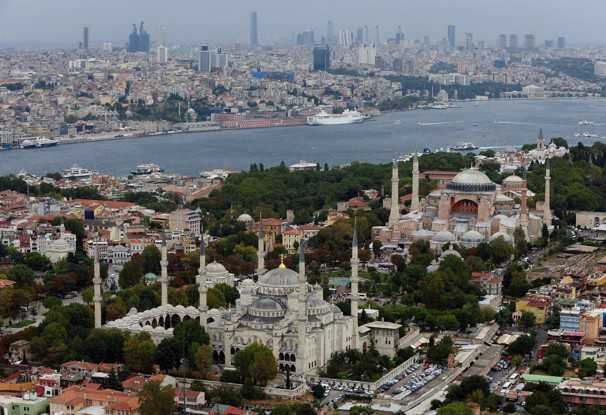By Staff, Think Progress
Posted on October 15, 2008, Printed on October 16, 2008
Editor’s note: Think Progress did a great job live-blogging tonight’s debate — here’s their minute-by-minute analysis:
10:33: When asked who won the debate, the New York Times’s David Brooks quipped on PBS, “Well, we’ll wait for the verdict from Joe the plumber.”
DEBATE ENDS … POST-DEBATE COMMENTARY BEGINS
10:25: McCain said that Sarah Palin knows about having a child with autism “better than most.” But her son Trig doesn’t have autism. He has down syndrome.
10:21: Although the debate isn’t even over yet, the AP’s Liz Sidoti is saying that McCain won:
A feisty John McCain tried hard to find a lifeline Wednesday night in the final debate, challenging rival Barack Obama at every turn over his truthfulness, associations and record. Obama was on defense for much of the night. By that measure, McCain won the last debate of the 2008 campaign. But that alone may not have been enough to win the election.
10:21: McCain talks passionately about improving education. But in 1994, he proposed “doing away” with the Department of Education.
10:20: McCain called education the civil rights struggle of the 21st century, but he voted against the Civil Rights Act of 1990. (UPDATE: In 1983, at the age of 46, McCain voted against creating the Martin Luther King holiday. He apologized for that vote this spring.)
10:17: McCain said he would seek to boost adoptions. However, he has taken an extreme position in opposing the right of gay couples to adopt children.
10:16: According to McCain, concern for the health of a mother is now a position of the extreme “pro abortion movement.”
10:15: Throughout the night, McCain has repeatedly invoked “Joe the Plumber.” For the record, the plumbers union — the United Association — has endorsed Obama, saying that his policies would “help us keep existing jobs and work to develop new, higher paying jobs here in America.”
10:15: In attacking Obama, McCain said, “I don’t know how you vote present.” One way is to simply fail to vote, a skill he’s perfected in the last year: McCain has missed over 64 percent of the votes in the 100th Congress.
10:12: McCain just dismissed guaranteeing equal pay for equal work as a “trial lawyer’s dream.”
10:11: McCain says he wouldn’t have a litmus test for appointing judges to the bench, but he also recently told Pastor Rick Warren that he wouldn’t have appointed any of the liberals and moderates on the Supreme Court: “Justice Ginsberg, Justice Breyer, Justice Souter, and Justice Stevens.”
10:09: McCain claims that Obama voted against Supreme Court Justices Roberts and Breyer. Breyer was actually nominated by President Clinton, before Obama even became a senator. Obama actually voted against Justice Alito.
10:07: McCain said that the average health care plan costs $5,800, the size of the employer contribution. McCain has been a recipient of government health care his entire life and may not know that, according to the latest estimate, the average health care plan is actually 12,680.
10:06: McCain just called Obama “Senator Government,” then corrected himself.
10:06: McCain said the escalating costs of health care are inflicting pain on “working class families.” Ironically, Mccain’s plan to shift Americans from the employer-based system into the individual health insurance market would increase their out-of-pocket health expenses.
10:04: McCain bragged that he would give every family a $5,000 tax credit to buy insurance. Unfortunately, McCain’s credit depreciates over time and would not cover the average health care premium of $12,000.
10:03: As Atrios notes, moderator Bob Schieffer is asking questions that offer a false choice, such as “Would you favor controlling health care costs over expanding coverage?”
10:03: McCain said that if you like Obama’s health care plan, “you’ll love Canada or England.” And indeed people do like those countries systems better: “One-third of Americans told pollsters that the U.S. health care system should be completely rebuilt, far more than residents of Australia, Canada, New Zealand, or the U.K. Just 16 percent of Americans said that the U.S. health care system needs only minor changes, the lowest number expressing approval among the countries surveyed.”
10:01: McCain says we should have “physical fitness and nutrition programs” in our schools to reduce the number of overweight children. This seems hard to square with his plan for an across-the-board spending freeze.
10:00: McCain said the escalating costs of health care are inflicting pain on “working class families.” Ironically, McCain’s plan to shift Americans from the employer-based system into the individual health insurance market would increase their out-of-pocket health expenses.
9:56: Obama is arguing for better labor standards in trade agreements. Christian Weller has found that “United States can improve its trade deficit, which has been at or above 5% of gross domestic product since the middle of 2004, by calling for improved labor standards from America’s trading partners.”
9:55: Obama said America invented the automobile industry. In fact, the first market-viable car was developed by Germany’s Karl Benz. The first automobile was invented in 18th century France and the first internal combustion engine was invented in 1806 by a French-speaking Swiss man (this is why we use the French word “automobile”).
9:52: McCain said that if we start drilling offshore now it will lower the price of a barrel of oil. But his top economic adviser, Douglas Holtz-Eakin, admitted in June that “new offshore drilling would have no immediate effect on supplies or prices.” (UPDATE: The Energy Information Administration says expanded drilling “would not have a significant impact on domestic crude oil and natural gas production or prices before 2030.”)
9:50: McCain seems to think the viability of nuclear-powered naval vessels demonstrated the viability of safely storing nuclear waste. We do not, of course, actually store the waste on the ships. The two things have nothing to do with each other.
9:48: McCain said we had to fight the first Gulf War to prevent Saddam Hussein from threatening our “world supply.” Presumably he meant “oil supply.” Alternatively, perhaps McCain is Galactus and needs to devour worlds to survive.
9:46: McCain observed that the American people have gotten to know Sarah Palin. He didn’t mention that they don’t like her! She’s got a 32/41 favorable/unfavorable spread in the latest NYT/CBS poll.
9:45: McCain cites Palin’s efforts to erect a pipeline to bring energy to the lower 48 states. That project exists on paper only, and Palin has actually opposed another plan to bring Alaska’s natural gas to the rest of the country.
9:45: Touting Palin’s credentials, McCain called her “a reformer.” Like Palin, perhaps he hasn’t read the Alaska Legislative Council’s investigative report showing she “abused her power” and violated the state’s Ethics Act.
9:45: McCain praises Palin for “giving money back to the taxpayers,” which Palin accomplished through enacting a windfall profits tax on oil companies. McCain opposes such a tax.
9:37: After attacking Obama for his connection to Ayers, McCain declared suddenly, “My campaign is about getting this economy back on track.” Obama laughed.
9:36: McCain brings up Ayers — “a washed up terrorist” as he calls him. (UPDATE: McCain says ACORN is “destroying the fabric of our democracy.”)
9:35: McCain: “I’m proud of the people who come to our rallies.” (UPDATE: Obama invited McCain to bring up Ayers, saying that Palin had said he is “palling around with terrorists,” McCain again refused to engage.)
9:34: We think the American people would probably be more interested in hearing about plans by Obama and McCain to impact the lives of ordinary Americans than hearing them critique each other’s campaign tactics.
9:33: McCain said it’s “not true” that he’s running 100% negative ads. In fact, the Wisconsin Advertising Project recently found that his ads were 100% negative.
9:32: McCain claimed that he’s repudiated every “out of bounds” remark by a Republican about Obama. Just this week, however, McCain demurred when asked if he would repudiate remarks made by the chairman of the Virginia Republican Party comparing Obama to bin Laden.
McCain interrupted Obama to say that he should read what Rep. John Lewis (D-GA), who participated in the Freedom Rides to desegregate the South, said about the McCain campaign. Here’s what Lewis said:
9:30:
What I am seeing reminds me too much of another destructive period in American history. Sen. McCain and Gov. Palin are sowing the seeds of hatred and division, and there is no need for this hostility in our political discourse. . . .
George Wallace never threw a bomb. He never fired a gun, but he created the climate and the conditions that encouraged vicious attacks against innocent Americans who were simply trying to exercise their constitutional rights. Because of this atmosphere of hate, four little girls were killed on Sunday morning when a church was bombed in Birmingham, Alabama.
As public figures with the power to influence and persuade, Sen. McCain and Gov. Palin are playing with fire, and if they are not careful, that fire will consume us all. They are playing a very dangerous game that disregards the value of the political process and cheapens our entire democracy. We can do better. The American people deserve better.
9:29: Debate moderator Bob Schieffer essentially invited McCain to talk about Bill Ayers to Obama’s face, and McCain took a pass, changing the subject to John Lewis.
9:29: McCain is blinking maniacally during all his answers; Obama seems unbothered by the lights.
9:28: McCain said he “vigorously opposed” President Bush’s conduct of the war in Iraq, but just this past April, he proudly said that “no one has supported President Bush on Iraq more than I have.”
9:25: Obama noted that his support of clean coal doesn’t make him “very popular with the environmental community.” Maybe Obama should consider that if environmentalists don’t like it, it’s because there’s nothing clean about it!
9:24: McCain defensively argued that he wasn’t President Bush, but in 2005, he declared that “on the transcendent issues, the most important issues of our day, I’ve been totally in agreement and support of President Bush.” (UPDATE: McCain said “I’m not president Bush.” But McCain has voted with Bush 95% of the time and has previously stated that he agrees with Bush on all major issues.)
9:23: McCain says “I would fight for a line-item veto.” A line-item veto was signed into law years ago and ruled unconstitutional in 1998.
9:21: McCain’s across-the-board, hatchet-like spending freeze is still a counterproductive pro-cyclical measure as we head into a recession, reminiscent of Herbert Hoover’s austerity budgets that deepened the Great Depression.
9:20: McCain said that during the Great Depression “we had something called the Home Ownership Loan Corporation.” In fact, it was called the Home Owners’ Loan Corporation.
9:19: Earlier in the debate, McCain repeatedly attacked Barack Obama for his conversation last Sunday in Ohio with “Joe the plumber,” as McCain refers to plumbing business owner Joe Wurzelbacher, whose earnings of over $250,000 a year puts him comfortably in the top five percent of earners in the United States. Watch the conversation:






